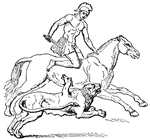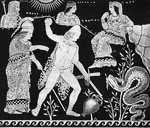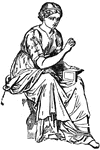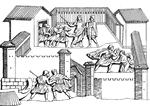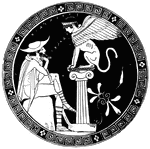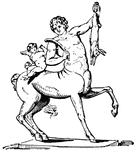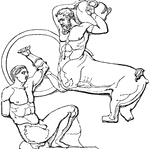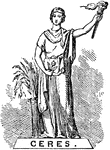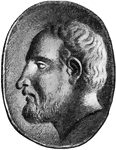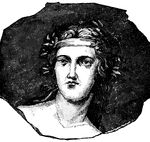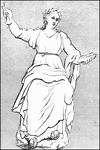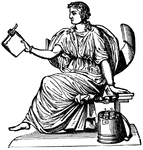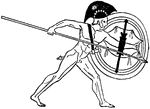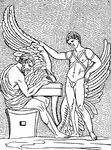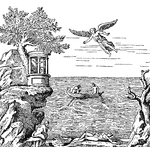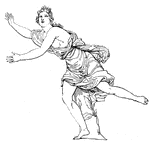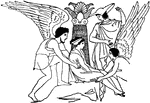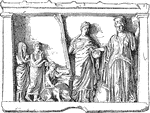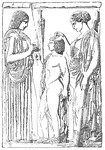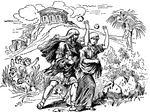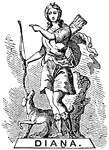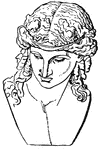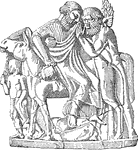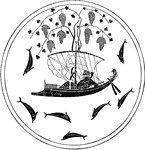64 illustrations from Greek mythology including: Bacchus, Bellerophon, Boreas, Cadmus, Calliope, Castor, Cedipus, Centaur, Cerebrus, Ceres, Chimera, Chiron, Circe, Clio, Cipid, Daedalus, Danae, Danaids, Daphne, Death, Demeter, Diana, Diomede, Dionysus, and Dryope.
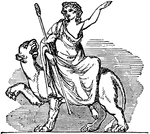
Bacchus
"The god of wine, was the son of Zeus and Semele, the daughter of Cadmus. Before his birth, Semele fell…
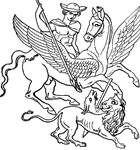
Bellerophon and the Chimaera
Bellerophon, a song of Glaucus, King of Ephyre, by Eurymede, was at first called Hipponous. The murder…
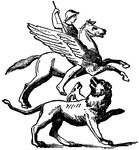
Bellerophon, Pegasus, and the Chimera
"After the conquest of the Chimaera, Bellerophon was exposed to further trials and labors by his unfriendly…

Boreas
Boreas was the Greek god of the cold north wind and the bringer of winter. His name meant "North Wind"…
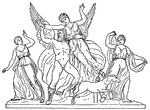
Boreas and Orithyia
"Boreas loved the nymph Orithyia, and tried to play the lover's part, but met with poor success." —Bulfinch,…

Centaur
"These monsters were represented as men from the head to the loins, while the remainder of the body…

Chimera
A fire breathing monster, the fore part of whose body, according to the Iliad, was that of a lion, the…
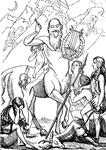
Chiron
"Chiron was instructed by Apollo and Diana, and was renowned for his skill in hunting, medicine, music,…
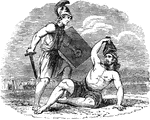
Codrus slain
"Determined to save his own country at the expense of his own life, Codrus disguised himself in a peasant's…
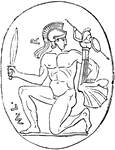
Diomede
"The following cut, from an ancient gem, represents Diomede in the act of bearing away the Palladium."…
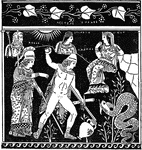
Cadmus and the Dragon
"Cadmus and the Dragon. (From a vase-painting at Naples.)" — The Delphian Society, 1913





